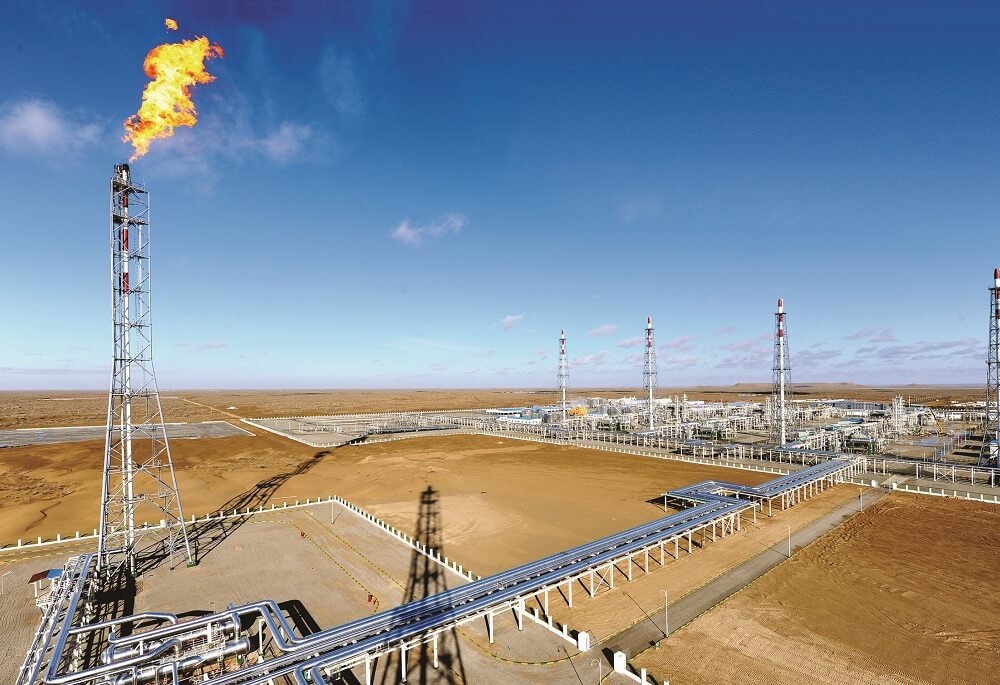Gas routes between Turkmenistan and Uzbekistan
Ašgabat possesses natural gas reserves of 17.5 trillion cubic metres, ranking 4th after Russia, Iran and Qatar. Today it can no longer sell it to Moscow on the agreed terms, and this could open up new possibilities for Uzbek neighbours living in the cold. But it would require a political choice that is anything but simple.
Tashkent (AsiaNews) - Uzbekistan has been suffering from gas and electricity shortages for a quarter of a century now, a problem that becomes particularly acute during the heating season, when people are forced to use stoves and makeshift systems to avoid freezing inside their homes.
Now Turkmenistan's refusal to sell gas to Russia may open up new possibilities for the Uzbeks' thirst for fuel, opening up access to cheaper sources than Russian ones, but this requires a similar distancing of Tashkent from Moscow, a political choice that is anything but simple, even before being an economic necessity.
As early as October, the president of the state-owned Turkmengaz company, Maksat Babaev, announced that the five-year contract with the Russians, in place since 2019, would not be renewed, justifying it with the need to diversify exports, increasing their volume and prices. In the renewal negotiations with Moscow, in fact, the Russians had not accepted the increases demanded by Ašgabat.
Turkmenistan possesses natural gas reserves of 17.5 trillion cubic metres, ranking 4th after Russia, Iran and Qatar. Every year the country extracts 63.2 billion cubic metres of gas, thanks to the activities not only of Turkmengaz, but also of China National Petroleum and Malaysia's PetroNas.
Of this, 31.5 billion M3 is destined for domestic needs, and about 32-35 billion is sold to China. Since 2003, an agreement was in place with Russia's Gazprom for 50 billion per year, later reduced to 30 billion M3, but in reality Russia has never purchased such quantities of Turkmen gas, limiting itself to 10 billion in 2021, up to 4.7 billion last year.
While the Turkmen fail to sell the gas according to the agreements to Russia, their Uzbek neighbours live in the cold and without gas. Every year, from late autumn until spring, dozens of Uzbeks die from carbon monoxide poisoning, which is used to heat homes by various makeshift means.
Last week, the administration of the Uzbek state company Khududgazminot reported that since the beginning of 2024, 74 cases of similar incidents have been recorded, 82 people have died and another 80 are in serious condition.
Uzbekistan also has its own gas extraction production, with reserves of up to 1.8 billion M3, ranking 17th in the world, and like Turkmenistan has for many years sold gas to Russia at very low prices, but in the last five years the level of Uzbek gas extraction has started to decrease more and more.
According to the local institute of statistics, 33.48 billion M3 of natural gas was extracted between January and September 2024, 4.8 per cent less than the previous year, in the face of increasing demand from the population.
As Energy Minister Žurabek Mirzamakhmudov explained at the St Petersburg Gas Forum last November, ‘in Uzbekistan, natural population growth is estimated at one million people per year, and the economy has grown by 6 per cent, with increasing needs for energy resources, at least 10-15 per cent more each year’.
Tashkent currently buys its gas from Russia, since September it has also started to import it from Turkmenistan, and all experts advise focusing on Ašgabat, which offers the best economic conditions, leaving the Russians out of it.
As former energy minister Anvamirzo Khusainov recalls, ‘the border between Uzbekistan and Turkmenistan stretches for more than 1,500 kilometres, and Turkmen gas passes through pipelines on our territory to get to China or Russia... all that is needed is a clear political will, our market is already ready for this solution’. It is not easy to break free from the centuries-old dependence on Moscow, but the cold winter weather could definitely push us to break free once and for all.







.png)










